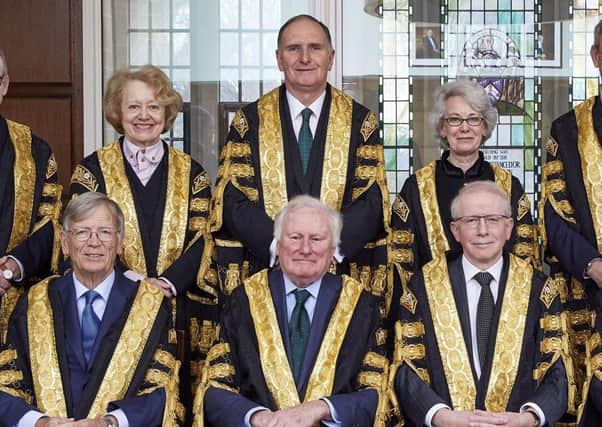The Supreme Court did not order a public inquiry into the killing of Pat Finucane, and that was the key part of the judges’ ruling


(The story can be read here ‘Parties unite to call for Pat Finucane killing public inquiry,’ November 22)
That related to the requirement or otherwise for another inquiry.
Advertisement
Hide AdAdvertisement
Hide AdTo balance the issue, and in the absence of any NIO explanatory statement, I quote from Brian Kerr, the former lord chief justice’s, concluding remarks in 2019, “I would therefore make a declaration that there has not been an article 2 compliant inquiry into the death of Patrick Finucane. It does not follow that a public inquiry of the type which the appellant seeks must be ordered. It is for the state to decide, in light of the incapacity of Sir Desmond de Silva’s review and the inquiries which preceded it to meet the procedural requirement of article 2, what form of investigation, if indeed any is now feasible, is required in order to meet that requirement.”


This detail is rarely mentioned in discussion of the options.
In other words, the government can choose simply to have no inquiry or offer administrative and legislative improvements, for example, in agent handling.
Article Two of the European Convention on Human Rights concerns protection of the right to life but its case law concentrates on state investigations of deaths and alleged inadequacies.
Advertisement
Hide AdAdvertisement
Hide AdThe Committee of Ministers of the Council of Europe which enforces Strasbourg court judgements accepts many different ways of improving future investigations in other countries.
Only in the UK’s case does it concentrate on the option of re-opening previous investigations, regardless of any useful outcome.
This is largely at the behest of the Irish government, various NGOs (non governmental organisations) and certain political parties where ‘Article Two-compliance’ has become a dogmatic mantra.
The Malone House Group, now accepted at Strasbourg as an NGO, has argued at length for a broader understanding of what Article Two can achieve.
Advertisement
Hide AdAdvertisement
Hide AdIn particular we have also called this year for a balance to be struck between those often competing human rights in Articles Six and Eight which are almost totally neglected by the state in its pleadings, let alone at Strasbourg. (Our legal opinions etc are to be found on the Council of Europe website).
I notice that the Alliance Party leader, Naomi Long, did not sign the letter, unlike her fellow executive minister Sinn Fein’s Michelle O’Neill. Indeed, the letter had standard SF phrasing, as if it had been written by that party.
Has she doubts over the efficacy of such an inquiry and its enormous costs?
Even the earlier view of Stephen Farry, the North Down MP, that an inquiry was not “prescriptive” was noticeably absent from the text. In the interests of transparency, it would be good to be told what our justice minister wants.
Jeffrey Dudgeon, Belfast BT9, Malone House Group convenor
——— ———
A message from the Editor:
Advertisement
Hide AdAdvertisement
Hide AdThank you for reading this story on our website. While I have your attention, I also have an important request to make of you.
With the coronavirus lockdown having a major impact on many of our advertisers — and consequently the revenue we receive — we are more reliant than ever on you taking out a digital subscription.
Subscribe to newsletter.co.uk and enjoy unlimited access to the best Northern Ireland and UK news and information online and on our app. With a digital subscription, you can read more than 5 articles, see fewer ads, enjoy faster load times, and get access to exclusive newsletters and content. Visit https://www.newsletter.co.uk/subscriptions now to sign up.
Our journalism costs money and we rely on advertising, print and digital revenues to help to support them. By supporting us, we are able to support you in providing trusted, fact-checked content for this website.
Alistair Bushe
Editor